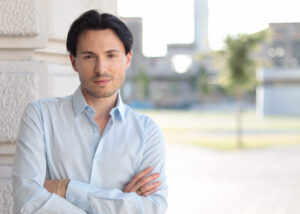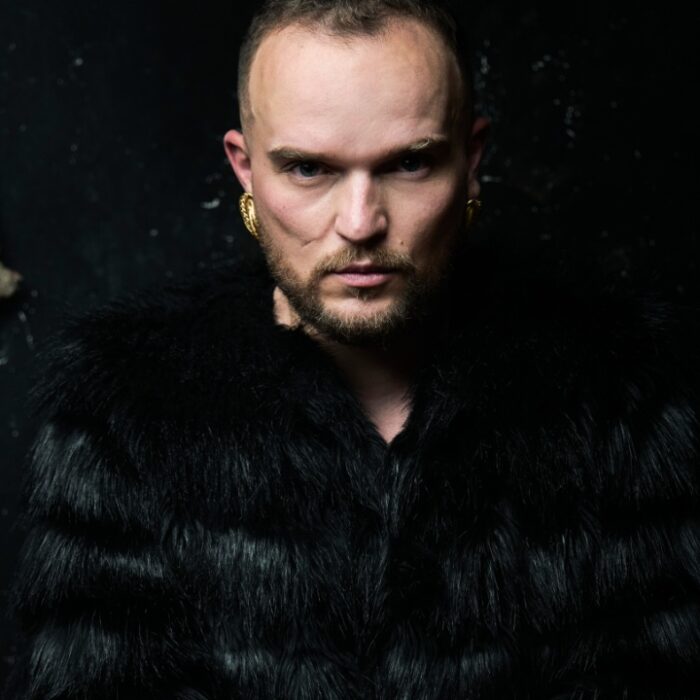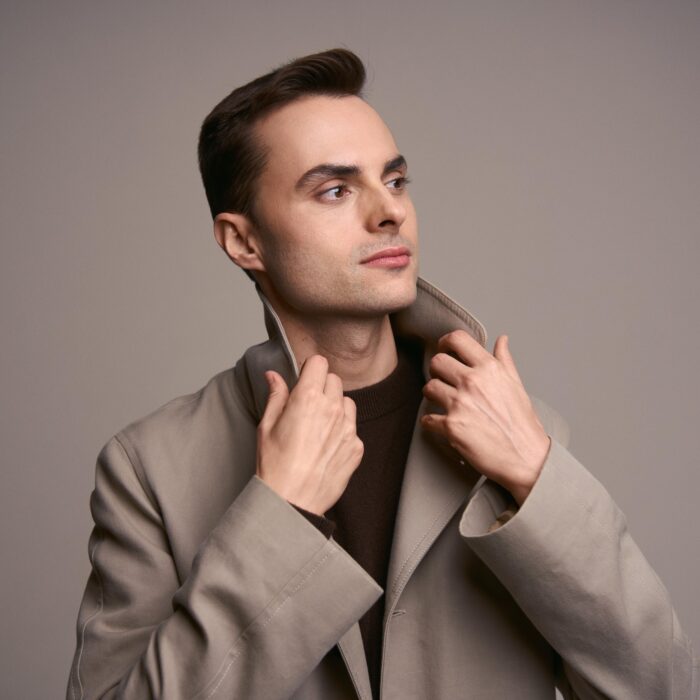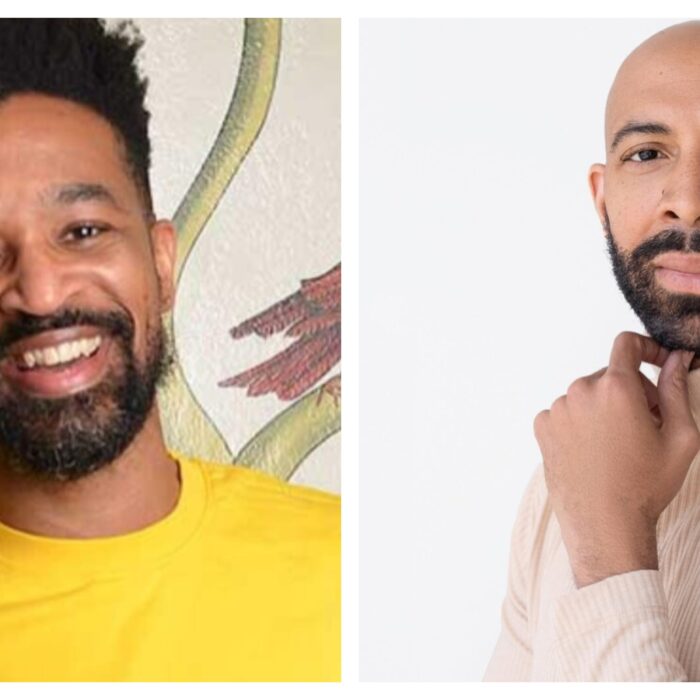
Q & A: Maximilien Seren-Piccinni on the Garda Festival & the Future of the Festival
By Francisco Salazar(©Alessandro Lodola)
Belgian-Italian director Maximilien Seren-Piccinni has deep roots in the history of music as he is a descendant of the famous Italian composer and master of opera buffa Niccolò Piccinni.
From a young age, he has been involved in the arts, having been the personal assistant to Mario Monicelli and later studying opera directing at the Polo Nazionale Artistico di Alta Specializzazione sul Teatro musicale. He has gone on to be an assistant set designer at the Arena di Verona and Salzburger Festspiele.
In 2023, he promoted the creation of the Garda Festival – Lake Garda International Music, Dance and Cinema Festival, organised by the Niccolò Piccinni Fund on the shores of Lake Garda and this year, he launched a short film, “Orfeo” at the 82nd Venice International Film Festival, which was a co-production between the Garda Festival and Bologna’s ICNN – Istituto Cinematografico Nuovi Narratori.
OperaWire spoke with Seren-Piccinni about the Garda Festival and what he sees for the future of the festival.
OperaWire: Tell me about the Garda Festival and how this came about?
Maximilien Seren-Piccinni: The Lake Garda is much more than just a place for me; it is “my lake,” the setting for my childhood and the backdrop to some of the best moments of my life. I feel a deep connection to it, and it is also linked to strong family memories. Although the Piccinnis are residents of Belgium, they spent every summer here. Even today, despite traveling extensively for work and visiting many wonderful places, I always feel a strong pull and deep nostalgia for the lake and my home. It was this deep connection with the area that led me to the idea of creating a multidisciplinary festival to welcome the greatest international artists. It would give them the opportunity to perform on the unique stages of places, from Monte Baldo to the Moraine Hills, that have always exerted an irresistible charm on artists, poets and composers. I entrusted the project entirely to the Niccolò Piccinni Fund, of which I am president, and to a team of highly qualified young professionals. After careful planning and organisation, we launched pilot editions in 2023 and 2024, which laid the foundations for the success of the Garda Festival, now in its third year. These experimental editions enabled us to refine the organisation and gauge public interest, preparing us for the festival’s future growth.
OW: How has the festival grown from its first edition in 2023?
MSP: The festival has grown significantly over the past three years. We began with two pilot editions, and this year we finalised the development of the Garda Festival brand. To achieve this, we designed each event in the 2025 programme to offer a unique and memorable experience that would leave a lasting impression. Rather than simply organising concerts, we aimed to create intimate moments in exclusive locations such as the Castle of Desenzano del Garda, the Dogana Veneta in Lazise and UNESCO sites of extraordinary natural beauty. The combination of these breathtaking locations and high-level performances has been particularly well received by both the international public and the local audience, rewarding us for our considerable efforts. Music plays a central role in the festival, with a repertoire ranging from opera to symphonic and chamber music, from baroque to contemporary. Backed by the experience of the Piccinni Fund, which has been a prominent presence in the music scene since 1961, music is at the heart of the programme. Dance, in all its forms — from classical ballet to contemporary — has been introduced to evoke the romanticism and fairy-tale atmosphere of the lake. Finally, cinema completes the artistic offering by reflecting the glorious cinematic history of these areas, which have long been favoured as locations for numerous productions, being called “Cinecittà del Garda.” The balance between music and cinema is natural; it is not the result of a forced union, but rather of their innate ability to interact and influence each other, creating new forms of expression and contributing to the event’s overall richness.
OW: How did your experience growing up in the theater shape your vision for this festival?
MSP: Music and theatre have always been an integral part of the Piccinni family. Anyone growing up immersed in these arts cannot help but make them part of their very being. While it is a great honour to descend from a composer like Niccolò Piccinni, it is also a heavy burden to bear. One often feels labelled and confined to a specific field, especially in our sector, which can limit one’s prospects. Fortunately, I have always had an eclectic approach, and my curiosity has extended beyond opera to other areas, allowing me to broaden my horizons. I have not limited myself to opera; over the years, I have also explored drama theatre and, above all, cinema, gaining diverse and valuable experience. I have tried to instill this attitude in my vision for a multidisciplinary festival. Rather than reflecting only my personality, I believe the festival reflects the historical period in which we are living, especially artistically. This is an era in which the boundaries between the arts are blurring, allowing each art form to influence the others.
OW: What do you like most about leading an organization like the Garda festival?
MSP: Having been immersed in this environment since childhood, and having gained experience at major international festivals such as the Salzburg Festival, the Venice Biennale, the Festival della Valle d’Itria and the Arena di Verona Opera Festival, I began to cultivate the idea of creating an international event right here on Lake Garda. Organising a festival is much more complex than running a traditional theatre, due to aspects related to outdoor locations and weather conditions. However, I feel fortunate to be able to return to those stages every year, which I consider to be my “home” and to look forward to the summer season as a big party where I can meet friends and loyal audiences, as well as new people. Not to mention the great collaborations, the beauty of the season and the locations, and the emotions that summer brings with it.
OW: How did the 2025 edition go and what are you excited for in 2026?
MSP: This year, we welcomed an extraordinary selection of internationally renowned artists, including Turkish tenor Murat Karahan, who performed in tribute to the 90th anniversary of Luciano Pavarotti’s birth. Soprano Ekaterina Bakanova gave an extraordinary recital dedicated to the Romantic Opera heroines. This year again the Festival included the assignment of the 43rd Piccinni Prize, with the awarding of the Croatian pianist Ivo Pogorelich. The Piccinni Prize for Excellence in the Performing Arts is given by an honorary committee comprising theatre superintendents and figures from entertainment, culture, and politics. Additionally, the principal dancers of La Scala returned to the Garda Festival stage for the third time with “Mythos,” a show inspired by classical myths (Catullus) and decadent romanticism (D’Annunzio). I cannot yet reveal the details of the 2026 season, but rest assured that great surprises await you for both the opera concerts and the cinema section. Follow us to make sure you don’t miss any of the upcoming excitement of the Garda Festival!
OW: As part of the Garda Festival, you initiated a collaboration with the Accademia del Cinema Italiano – Premi David di Donatello, establishing an annual concert dedicated to celebrating film music and soundtracks from Italian cinema. Tell me about this initiative and why you think this is important?
MSP: Among the many prizes won by my father, the famous statuette from the 1988 film Rain Man towers in the library. To pay homage to his past as a film producer, I decided to create a special event at the festival. In 2024, I organised a symphonic concert in collaboration with the Garda Festival, the Accademia del Cinema Italiano and the ACMF (Associazione Compositori Musica per Film – Film Music Composers Association). The concert was a great success, and we were honoured to receive patronage and a certificate in recognition of this from the Accademia. This valuable partnership enhances our festival, as the David di Donatello is the most prestigious Italian film award, alongside the Golden Lion of Venice, and celebrates its 70th anniversary this year.
OW: Tell me about the Niccolò Piccinni Fund and some of its initiatives?
MSP: The Niccolò Piccinni Fund was established in Belgium in 1961 by my grandfather, Vittorio Piccinni. The cultural legacy of the composer Niccolò Piccinni is the basis of the Foundation. Having moved to Italy in 2021, the Foundation’s mission is to promote culture through prestigious initiatives such as the Garda Festival and the Piccinni Prize for Excellence in the Performing Arts. The prize was established in 1967 to honour outstanding individuals in the performing arts and celebrated this year its 43rd edition. It is dedicated to Niccolò Piccinni in recognition of his greatness as a composer and his commitment to promoting talent in music, literature and theatre in the 18th century. Past winners include Carlo Bergonzi, Sylvano Bussotti, Franco Corelli, Leyla Gencer, Nicolaj Ghiaurov, Christa Ludwig, Giovanni Martinelli, Mady Mesplé, Leo Nucci, Georges Prêtre, Renzo Rossellini, Joan Sutherland, Uto Ughi and Franco Zeffirelli. Once the Fund’s flagship event, the award is now experiencing a revival after a 20-year absence due to family circumstances that temporarily interrupted its course. Following my appointment as president in 2018, the challenge was to restart the award, but we are now witnessing a grand comeback with the participation of internationally renowned opera singers, musicians and performers. For us this is an extraordinary achievement. We aspire to an international recognition for the prize, honouring its history and the prestige it always had. We want to the celebrate through its yearly assignment the great personalities that made its history.
OW: What do you hope for the Garda Festival in the future, and where do you see it?
MSP: Looking ahead to the 2026 edition, we are aware that we must continue to grow. We are ready to bring a new vision to life, which involves creating important cultural hubs in strategic locations to maximize the impact of our performances. To me, the Garda Festival is a jewel — a treasure that the Lake Garda area must protect and promote, and feel ever closer to. Given its success, this is my greatest wish. I envisage its future as a major international venue, where all the artistic expressions can flourish, perhaps also with exclusive events throughout the year. My team and I work passionately to bring unique emotions to our audience for this very reason. After all, emotion is the very essence of our festival.


